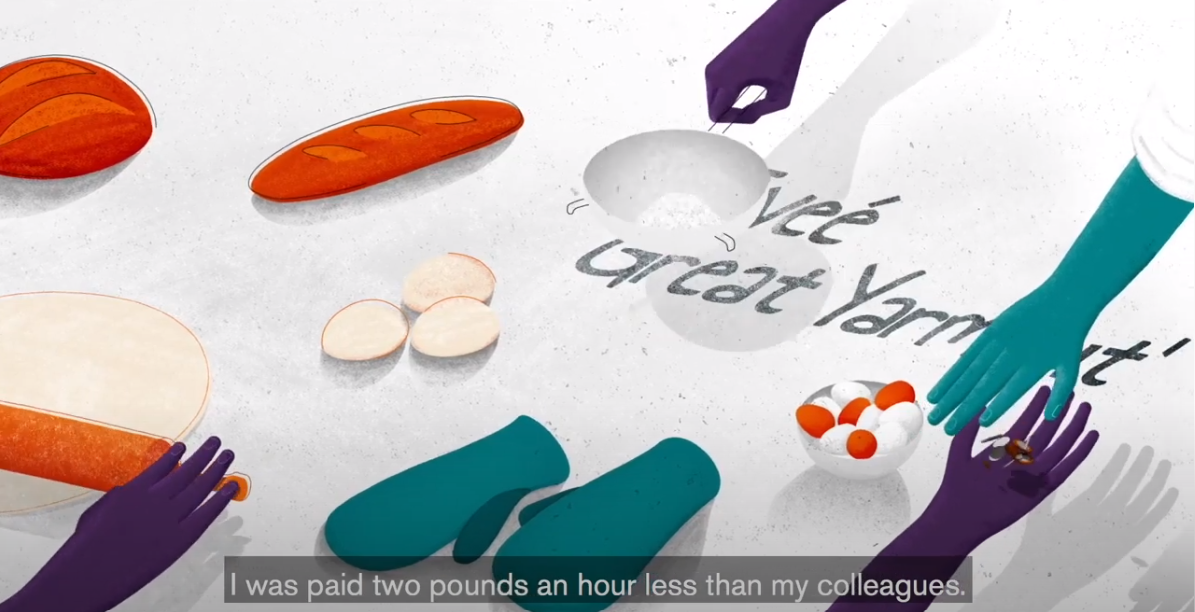At Young Women’s Trust, our vision is a world where young women are valued, can make choices and look forward to a fairer financial future. Our purpose is to create an equal world of work and raise young women’s incomes.
We’ll do this by:
- Offering free coaching, information and help with job applications to boost young women’s incomes and future prospects
- Developing a new service which provides young women with peer and professional networks
- Influencing government and employers to bring about equality in the workplace.
We believe that by doing all this, we can raise young women’s incomes and help them feel happy in their jobs and hopeful about the future.
Tackling the income gap
Young women face inequality from the very start of their working lives. On average, a young woman will earn a fifth less each year than a young man of the same age. For some groups of young women, such as those from racially minoritised communities, the income gap is even larger.
This gap only grows over the course of a woman’s lifetime – so starting to close it early will give them a fairer financial future.
There aren′t enough jobs out there with flexible working hours. There′s nothing convenient or accommodating to work around children, and childcare is so expensive. There aren′t enough paid jobs to afford childcare. Most employers cannot discriminate face-to-face but they do not want to take on single parents or mothers to be as they have childcare responsibilities.
A young mum
Working towards an equal world of work
Influencing policy
Structural and societal barriers such as lack of affordable childcare, an unfair distribution of unpaid work, widespread sexism and misogyny, and the segregation of young women into low-paid, poorly valued and precarious jobs, cause the income gap. We must tackle these in order to create change – for the million young women living on low pay now and for future generations of young women.
To do this, we will:
- Publish young women’s ‘Wish List’ showing what they need to happen for the world of work to be truly equal, and use this to inform campaigns for change, bringing the solutions it presents to the attention of politicians and decision makers.
- Launch a campaign mobilising young women to challenge discrimination and know their rights.
- Continue campaigning on the cost of living crisis – to ensure young women aren’t left even further behind.
- Influence political priorities in the build-up to a General Election.
- Develop and test community organising models to support young women to build their own grassroots campaigns.
Advocating for changes to workplace policy and practice
Employers have the power to transform young women’s experiences at work and to make pay, job security and progression prospects fairer. Through our research with managers and HR decision-makers, we know that many employers want to do more to tackle gender pay gaps and attract more young women.
We will harness this energy for change by:
- Running campaigns to reach employers and support them to make changes to their policies, practices and culture.
- Working with employers and commissioning research to understand the barriers to change and the solutions.
- Developing, testing and scaling a programme of practical support for employers.
- Developing partnerships with organisations already working with employers, to bring an age and gender lens to their work.
Helping employers to take action
Young women represent a wealth of potential for employers looking to recruit and retain a skilled workforce.
Society loses an estimated £28.2bn a year by trapping young women in low-paid, insecure work and making the workplace inaccessible for young women with caring responsibilities.
Young women unable to fulfil their talents at work
- Almost a third (32%) of HR decision makers are aware of instances of young women being discriminated against in the past year.
- Almost a third (31%) of HR decision makers agree that it is harder for women to progress in their organisation than men.
- More than 1 in 10 (11%) HR decision makers are aware of a woman being overlooked for a promotion she deserved in the last year.
- 1 in 5 (20%) HR decision makers think that men are better suited to senior management jobs than women.
Locking young women out of employment and progression opportunities is harming our businesses and our economy.


